By Ed Karvoski Jr., Culture Editor
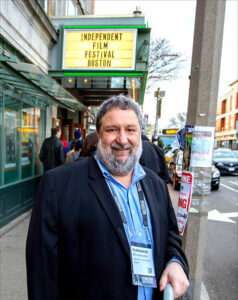
Photo/Ron Pownall
Cambridge/Boston – Now screening on the film festival circuit, the award-winning documentary “WBCN and the American Revolution” chronicles the impact of Boston’s progressive rock radio station with original sights, sounds and stories from 1968 to 1974.
Its producer-director Bill Lichtenstein of Cambridge channels his passion that began in 1970 as a 14-year-old volunteer answering WBCN-FM’s Listener Line and ultimately an on-air host of his own weekly show.
“I was involved in creating what became a distinctive ‘BCN sound: editing together music, comedy, politics and actualities in montages that were used for news and other purposes,” he explained. “I got $8 an hour – a lot of money for a ninth-grader in those days.”
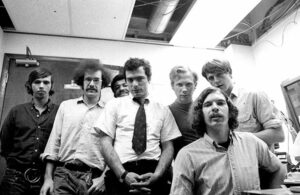
Photo/David Bieber
Originally a classical music station, WBCN’s call letters stood for Boston Concert Network. Its format was changed to rock music in 1968 by Ray Riepen, an attorney from Kansas City, Miss., pursuing a master’s degree at Harvard Law School at the time.
Lichtenstein credits Riepen for strongly influencing the era’s counterculture by creating three entrepreneurial startups: the Boston Tea Party rock club, the Boston Phoenix alternative newspaper, and WBCN’s transformation to a progressive rock station with a conversational tone.
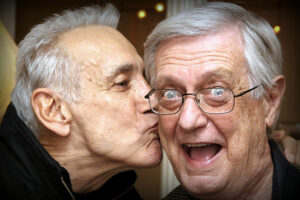
Photo/Peter Simon
“Ray Riepen had a far greater impact on the ‘60s than any other cultural figure,” he declared. “As ‘BCN announcer Tommy Hadges says in the film, it was seeing radio not so much as a performance but as a relationship with the listener. Ray envisioned that and made it happen. Other stations that were doing this at the time hired professional announcers, so there was a commercial quality to their presentation. In contrast, Ray hired a bunch of kids with no radio experience, but who knew the music and could communicate with other kids.”
The feature-length documentary highlights the time period from WBCN’s 1968 rejuvenation to Richard Nixon’s 1974 resignation as president. WBCN hired a skywriter to place its call letters and the peace sign above Boston Common filled with reportedly 100,000 protesters for the 1969 Moratorium to End the War in Vietnam.
“Nixon is the antagonist of the film,” Lichtenstein noted. “’BCN was very involved in mobilizing people against the war.”
While WBCN didn’t preserve archives, Lichtenstein found some of its recordings and photographs online. An initial discovery was a 1971 photo of the Pentagon Papers’ whistleblower Daniel Ellsberg surrounded by reporters outside Boston’s Federal Building after surrendering to authorities for supplying the New York Times with top-secret documents. Among the reporters was WBCN’s “news dissector” Danny Schechter with his microphone aimed at Ellsberg.
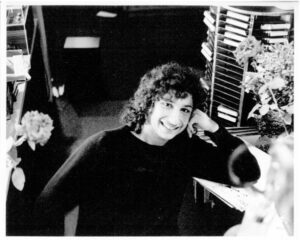
Photo/Don Sanford
“I started seeing archival material, some of which I thought was lost to the ages – and it suddenly reappeared,” Lichtenstein recounted. “I thought maybe there’s enough material out there that we could gather to tell the story of ‘BCN’s early days, which would actually be the story of how media can create social change.”
He posted an online request for WBCN listeners with saved recordings to contact him. A listener responded with a 1973 recording of an interview and musical performance of Bruce Springsteen in which “The Boss” shares, “This is my very first time on radio.”
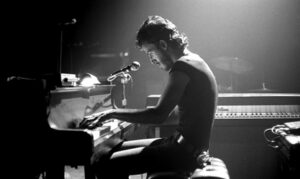
Photo/Barry Schneier
“Almost all of the audio tapes in the film were from listeners,” Lichtenstein relayed. “There’s a fanatical love for the station that endures beyond anything I’d anticipated.”
Find screening updates at theamericanrevolution.fm and facebook.com/theamericanrevolution; and Woods Hole Film Festival at woodsholefilmfestival.org.












